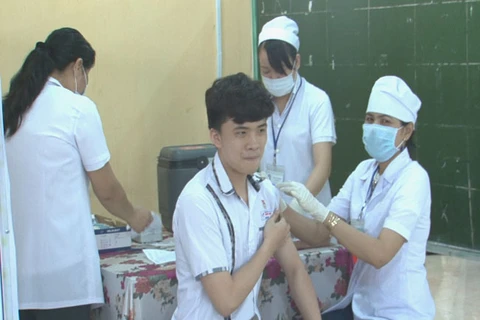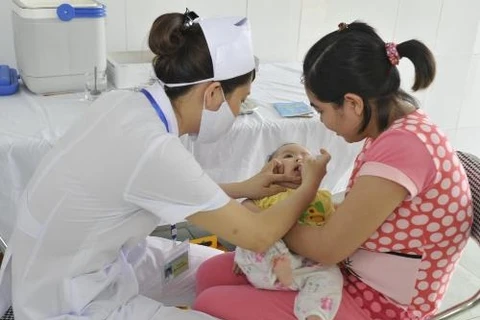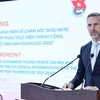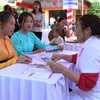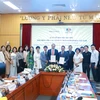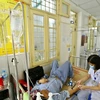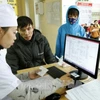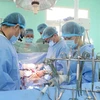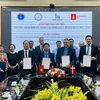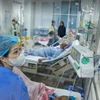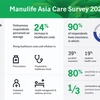Hanoi (VNA) – Vietnam is prioritising vaccinations in remote, mountainous and disadvantaged areas in order to equalise the immunisation rate among regions across the nation, stated Dang Duc Anh, head of the National Institute of Hygiene and Epidemiology.
According to Anh, the National Expanded Programme on Immunisation (NEPI) has been implemented for children and women in Vietnam for more than 30 years with an average national rate of over 90 percent.
However, around 5-10 percent of districts nationwide still have rates of below 90 percent, mainly in far-flung, mountainous and ethnic-inhabited areas.
To increase the proportion and quality of immunisation in these areas, regular vaccinations are being carried out in replace of periodical ones.
The birth of the Circular 117/TTLT-BTC-BYT in 2015 on the management and use of expenses for the national target programme on health marked an important step in prioritising investment in vaccination in disadvantageous areas.
Specifically, for each child in far-flung areas receiving sufficient vaccine injections, the heath worker is provided with 24,000 VND (1.08 USD), double the previous regulation.
Moreover, the NEPI has also called on international organisations to expand their assistance to help disadvantageous and mountainous regions in Gia Lai, Lai Chau, Yen Bai, Son La, Thanh Hoa and Ha Tinh provinces organise vaccinations outside of medical clinics to approach more women and children, Anh said.
He added that international organisations have also been proposed to help implement activities to increase the immunisation rate synchronously during 2017-2019.
He went on to say that the rate of hepatitis B vaccination for new-born babies within 24 hours in several localities remained below 50 percent in 2015, while the national average rate reached 69.8 percent.
About a half of children aged 2-4 months catching whooping cough are those who have yet to be vaccinated or vaccinated fully.
Therefore, in 2016, the health sector will continue efforts to maintain the country’s achievements in controlling the spread of polio, eliminate neonatal tetanus, and raise the rate of hepatitis B vaccination for new-born babies within 24 hours in order to successfully control the disease in 2017.
It will also provide additional injections against measles-rubella for juveniles aged 16-17 nationwide.-VNA


